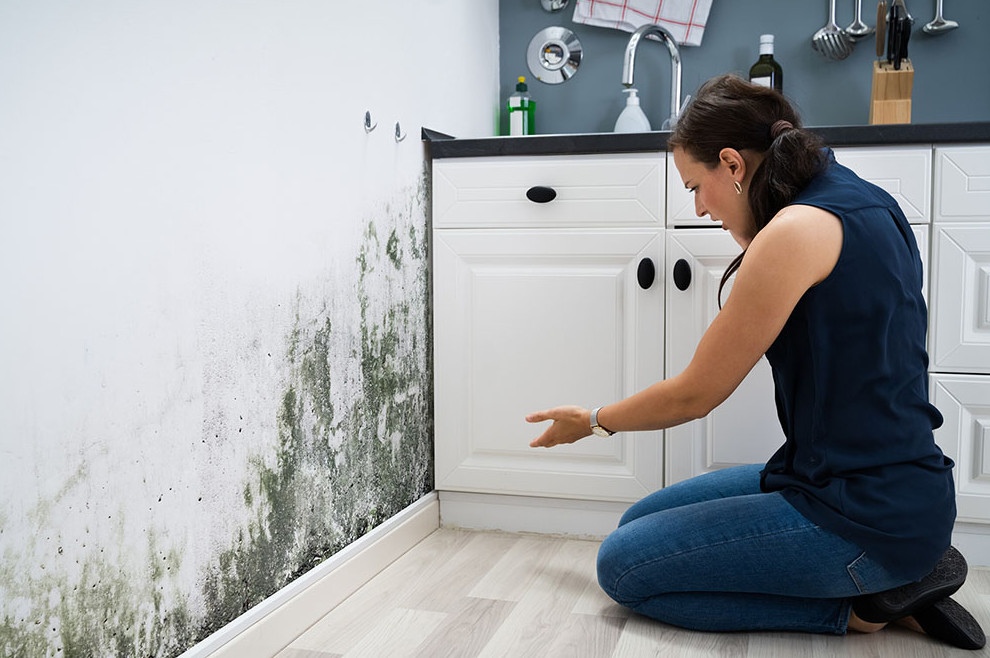
The Health Costs of Housing Disrepair: What UK Tenants Must Know
When homes fall into disrepair—whether from leaks, mould, or faulty wiring—the immediate inconvenience is obvious. But the hidden toll on health is often overlooked. For many UK tenants, poor housing conditions become a breeding ground for illness, stress, and long-term health problems. This article explores how housing disrepair affects physical and mental wellbeing, why landlords must be held accountable, and how tenants can protect their health and assert their rights.
Mould and Damp: Invisible Threats with Real Consequences
One of the most notorious health threats from housing disrepair is mould. Often caused by damp conditions—due to plumbing leaks, rising damp, or condensation—mould can rapidly spread and produce fungal spores that suspend in the air.
Health effects include:
Chronic respiratory issues (e.g., asthma, bronchitis, wheezing)
Sinus infections, headaches, and eye irritation
Eczema flare-ups, itchy skin, and rashes
Weakened immune response in vulnerable individuals
Young children, older adults, and those with pre-existing respiratory conditions are particularly at risk. What starts as a small patch of black mould can quickly become a widespread hazard if not addressed.
Cold Homes and Cardiovascular Risk
Homes with broken heating systems, damaged boilers, or inadequate insulation fail to retain warmth during the colder months. Living in a consistently cold environment is more than a comfort issue—it carries significant cardiovascular dangers.
Potential impacts:
Increased blood pressure
Higher risks of heart attacks and strokes
Suppressed immune response, leading to infections like pneumonia
Worsening symptoms for those with arthritis or joint conditions
Maintaining a warm home isn't a luxury—it's a public health necessity.
Electrical Faults, Structural Damage, and Emergency Health Concerns
Housing disrepair often includes forgotten hazards like exposed wiring, broken switches, or rotten floorboards. These aren't mere annoyances—they can cause:
Electric shocks or even fires
Trips and falls on uneven flooring
Injuries from collapsing ceilings or walls
What may seem like minor structural issues can result in serious injuries—especially if left unchecked.
Mental Health Impact: Stress, Anxiety, and Powerlessness
Beyond physical health, housing disrepair erodes mental wellbeing. Studies indicate that living in poor conditions can lead to:
Increased anxiety and depression
Chronic stress from ongoing disputes with landlords
Feelings of helplessness and low self-worth
Social isolation and sleep disturbances
When your home—your safe haven—becomes a threat, it undermines your mental resilience. Living under this pressure harms your quality of life in profound ways.
Legal Obligations Start with Health
UK landlords are legally required to ensure their properties are fit for human habitation, which includes protecting tenant health. Laws demand that landlords:
Repair leaks and structural issues promptly
Prevent or address damp and mould
Maintain heating and insulation
Keep services (gas, electric, plumbing) in safe working order
When these duties are ignored, tenants have the right to demand intervention, repairs, and compensation.
To get help or explore your rights, visit https://housingdisrepairteamuk.org/. Their team specialises in health-related disrepair cases and can guide you through the process.
What to Do if Housing Disrepair Affects Your Health
Log symptoms and medical visits related to housing conditions.
Collect evidence: photos, videos, dated documentation.
Inform your landlord in writing, requesting specific repairs.
Track all interactions: calls, emails, and paperwork.
Seek help if repairs don’t happen—work with professionals or contact environmental health.
Claim compensation for health damage, stress, or property losses.
If you're ready to start, contact the Housing Disrepair Team UK for a free case assessment.
Medical Proof: The Cornerstone of Your Case
Health-related claims are strengthened by documented medical evidence. If you experience breathing problems, skin issues, or anxiety believed to result from your home environment:
Visit your GP, explaining the situation
Request notes that link symptoms to your housing conditions
Keep prescriptions or test results as part of your claim
This medical paper trail is powerful proof when submitting a claim.
How Claims Unfold in Practice
Once contacted, legal advisors may:
Send a legal letter to your landlord detailing obligations
Arrange a property inspection (by a surveyor)
Issue a council notice if necessary
File a compensation claim based on health impacts and inconvenience
Enter court only if needed; many cases resolve through negotiation
This professional support streamlines the process and ensures your rights are upheld.
Action Prevents Long-Term Damage
Acting early is crucial: six years is the legal limit for property-related claims, three years for injuries/toxic health issues. But health complications can escalate over time. Swift action doesn’t just preserve wellbeing—it preserves your legal standing too.
Your Home Should Be Your Sanctuary
A home should offer comfort, shelter, and peace—not illness, discomfort, or danger. If you’re living in disrepair, don’t wait. Your health, legal rights, and mental wellbeing matter.
Turn things around by seeking support, building your case, and making your home truly habitable again.
You may also like
More from this category.

The Power of Tandoor Ovens in Modern Commercial Kitchens

Tooth Extraction in West Delhi – Expert Oral Surgery Care | DentoHub

Vinny Pizza: A Slice of Authentic Flavor with a Modern Twist

County Pizza: Where Local Flavor Meets Legendary Taste

NextGen Diagnostic Imaging

Get the Perfect Smile with the Best Orthodontist in Langar House at FMS Dental

Best Dentist in Hyderabad – Patient-Focused Care at FMS Dental

Why Selenium Is the Most Popular Tool for Web Automation?

Anti-Aging Treatments: Modern Solutions for Youthful, Healthy-Looking Skin

